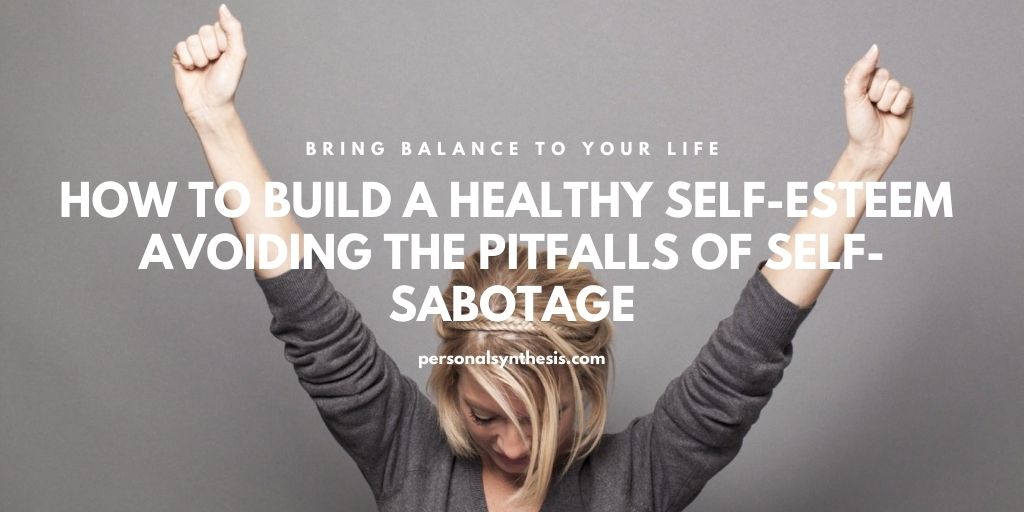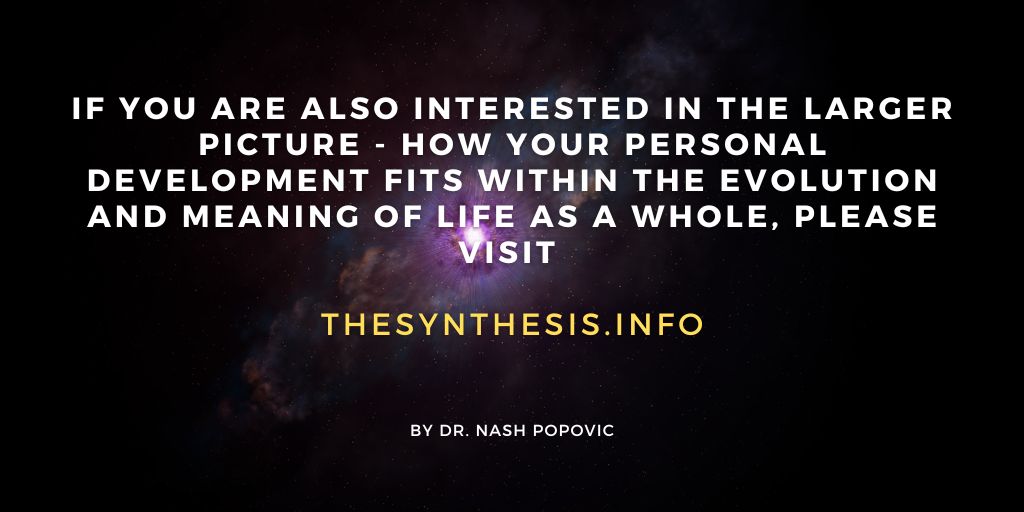How to Build a Healthy Self-Esteem – Avoiding the Pitfalls of Self-Sabotage

Written by Slobodan Kezunovic
Nobody likes to feel like a failure. Like you’re nothing but a loser in this strange game of life. We all want to feel good about ourselves at the end of the day, like we are deserving of affection and the good things in life.
Unfortunately, in today’s culture, so many of us have fallen victim to an ego-boosting addiction, constantly seeking confirmation of our value from the outside world. Social media has played a huge role in this.
Unless you’re running a business and using social media to promote your products or services, the number of likes, comments and shares you get on your posts serve no other purpose than to give you a dopamine kick and boost your ego.
Of all the things you can do to build your self-esteem, social media recognition is one of the emptiest and most fleeting straws you can hold on to.
On the one hand, it can get you hooked on seeking approval from others. This can strap you in on a self-esteem rollercoaster, where you can experience highs and lows many times throughout the day.
On the other hand, it can lead you to develop an inflated sense of ego that is unjustified, which can only cloud your judgement and distort your view of the world.
It’s important not to view life nor yourself through a distorted lens. When you look at life through “ego glasses”, you inevitably end up having blind spots. The same is true when you have low self-esteem. It skews your perception of reality.
Now, don’t get me wrong, I’m not trying to knock on social media. It’s great for keeping in touch with friends from anywhere in the world, and certainly useful for sharing information. It’s just important to be aware of how it can influence your perceptions of yourself and the world.
There are other mistakes we can unknowingly make that can damage our self-esteem. But before we go deeper into them, let’s take a look at what self-esteem actually is.
What is Self-Esteem?
Self-esteem is our overall sense of our own personal value or worth. In even simpler terms, it is our attitude toward ourselves.
Our self-esteem is not constant or fixed. It can go up and down depending on how we currently feel about our physical appearance, behaviour, financial situation, living conditions, etc. It depends on the degree to which we believe we are living up to, or squandering our full potential.
Some of these things we can control only to a certain extent, because certain aspects of them are outside our power.
For example, you had no say in where you were going to be born, but you do have the power to leave that place if you choose to. Likewise, the colour of your skin or your height are simply what you drew in the genetic lottery, but it is in your power to take care of your body and keep it healthy and in shape.
So what’s the bottom line? In short, it’s that our favourable or unfavourable view of ourselves depends on our actions, but it is also a matter of perspective.
How Do We Sabotage Our Self-Esteem?
There are different ways we can unintentionally sabotage how we feel about ourselves. When we are able to recognize them, we can replace them with actions and perspectives that work in our favour.
If you catch yourself going down one of these roads, there are several things you can do to get back on track.
Unrealistic Expectations
Our judgements of ourselves are tied to our perception of the degree to which we are fulfilling our own expectations.
Let me give you the simplest of examples. If you expected to get an A on an exam but ended up getting a C, you might be disappointed and have lower self-esteem because you feel that you have underachieved. If you barely studied and expected to fail but ended up getting that same C, you will most likely feel satisfied in that moment and have high self-esteem because you exceeded your expectations.
Even though you received the exact same grade in both cases, you can see how the second case can actually make you feel better depending on your expectations.
The same principle applies to practically all areas of our life. Our fitness, work, finances and relationships. When we set unrealistic expectations of ourselves that we can’t possibly hope to meet, we inevitably end up feeling like underachievers.
Now, I’m not saying that you shouldn’t dream big or aim high, but just make sure that you’re not setting yourself up for failure.
Do a realistic assessment of where you are and where you want to be. Try to define the specific steps that could get you there, then adjust your current expectations based on what you honestly believe you can achieve by a certain deadline.
When you manage to fulfil those expectations, you can slowly raise the bar and move closer to your ultimate goal, while gradually increasing your self-esteem along the way.
It is easier to win many small battles in order to win the war, instead of approaching every single goal as if it were D-Day.
Comparison and Competition
This has to do with what I mentioned at the very beginning. Only a handful of people actually live the perfect lives they do their best to present on social media. This is important to keep in mind when scrolling through Instagram and feeling like everyone else has it better than you.
You can never know what those filtered smiles and fancy cars hide behind the scenes, because nearly everyone is fighting some kind of battle that the rest of the world knows nothing about.
Did you know you can actually rent out a “private jet” photo shoot set? Yeah, a studio set made to look like the interior of a private jet. No expensive flights, no exotic destinations, just a make-believe image of a luxurious lifestyle on social media.
The point? When you start comparing yourself to other people who seem to always be traveling, buying the latest gadgets and eating out at classy restaurants, it is so easy to start feeling like a loser. So don’t do it.
If you catch yourself comparing with those who you imagine are more fortunate, as an antidote, think straight away about those who have it worse than you. It can be in terms of freedom, health, money, time, or whatever else you have but are taking for granted.
If anyone, the only person you should be comparing yourself to and competing with is who you were yesterday, but only to keep track of your progress and make adjustments if necessary. Even here you should be careful.
Looking back to who we were yesterday can actually damage our self-esteem if we get trapped in thinking that everything was better in the past, including ourselves. Clinging to the past can be a problem in more than one way.
Clinging to Accomplishments or Failures
Many people tend to define themselves by their accomplishments, while others have a tendency to dwell on their own failures.
Although accomplishments are inherently positive and failures are negative, clinging to either one can damage our self-esteem.
If you only value yourself according to your accomplishments, you can develop a need for constant recognition or get hooked on a sense of achievement. This means that as soon as the high of achieving any particular success starts to wear off, your sense of self-worth can start to decline with it. In other words, if you only cling to your accomplishments, you may start to feel worthless without them.
Similarly, if you allow yourself to dwell on your failures, there is a good chance you will let them define you in your own eyes.
Failures are best handled when they are accepted as learning experiences and opportunities for growth. They’re a normal part of life and everyone experiences them, so there is no reason to beat yourself up about them. It’s only when we refuse to learn from our failures that we can get stuck in one place.
Accept your failures along with their lessons. Then leave the past in the past and move on.
Taking Things Too Personally
This one can be tricky, because it can become a vicious circle. When you take things too personally, you may experience feelings of inadequacy, self-doubt or shame which tend to lower your self-esteem. The lower your self-esteem is, the more likely you are to take things to heart again as “proof” of your unworthiness, even small things that others may not even pay attention to.
For example, someone you know passes you on the street and doesn’t say hello. If you take it personally, you might conclude that they don’t consider you important enough to acknowledge you, which can trigger feelings of unworthiness. Realistically, they could have just been lost in thought and simply didn’t see you, which has nothing to do with your personal value.
The same applies when someone is rude to you. More often than not, it’s the result of their own personal issues they may be dealing with, and not necessarily something that is your fault.
The most important thing to consider here is how you handle criticism. Instead of taking it as a personal attack or judgement of your value, could it be that someone is just genuinely trying to help you?
Consider if there is any truth to their statement and try to accept it in a constructive way. If there is anything you can learn from it, accept the lesson. If there is any positive change you can make, do it. Let everything else go.
At the end of the day, your personal value is not defined by the opinions of others. So don’t let other people’s comments or actions tear you down. You get to define who you are.
Negative Self-Talk and Beliefs
This one is pretty obvious and self-explanatory. You have to bring that judgemental little voice inside your head under control and put a stop to self-defeating lingo.
This is also tied to everything else we covered so far, because our self-esteem ultimately depends on what we believe to be true.
It doesn’t matter whether it comes from ourselves or from somebody else. If you won’t let others tear you down, why would you do it to yourself?
If you’re always putting yourself down with limiting beliefs, it is hard to feel like you could achieve something or get motivated to do better.
Our limiting beliefs are also the reason why we can take some things personally. Someone’s comment might match our own negative belief about ourselves and strike a chord with our insecurities.
To deal with negative self-talk, you need to first bring to the surface what you believe about yourself.
Then, check if your beliefs are based in reality, or whether they are misinterpretations or exaggerations.
You should also check if these beliefs are really yours. Negative beliefs and low self-esteem can be picked up early in life by accepting others’ definitions of ourselves to be true. But are they really?
This can help you be open to what’s possible in life and not sell yourself short.
Can Self-Esteem Be Too High?
When we talk about self-esteem, we usually focus on what can be done to improve it. However, it’s not always discussed how to know when to hit the brakes and stop it from going too high.
Ironically, having an inflated ego can cause you the same kinds of issues that low self-esteem would.
Having too much self-esteem means to hold yourself in the highest regard, even when it’s divorced from reality. It can make you overestimate your own abilities and become overconfident, entitled or self-absorbed.
You may shower yourself with undeserved praise and expect it from others as well. This can turn into a constant need for outside validation, the same as it would if you had low self-esteem.
Too high self-esteem can disrupt your relationships, because it’s far more enjoyable to spend time with down-to-earth people than it is to be around self-centred ones. If you’re always competitive and giving off an “I’m better than you” vibe, you’re simply no fun to hang around with, let alone be in a romantic relationship with.
Excessive self-esteem can also thwart your development and growth. If you’re convinced that you’re already perfect and know it all, why would you bother being open to learning something new? Without learning anything new, we actually don’t stay still but go backwards.
Finally, just like low self-esteem, too much of it can cause an inability to deal with criticism. Opposite to taking things too personally, you might completely reject all criticism as false. You might rationalize it as, for example, others’ jealousy or attribute it to some other ill intent, just to stay in line with your own positive self-image.
As you can see, it’s important to find a middle path when it comes to healthy self-esteem. Both extremes can become a problem in a similar way, so maintaining a balance is the key. The best way to do it is to remain open to growth and never stop learning.
Although a high self-esteem makes us feel good about ourselves, it’s actually not the only thing involved in our self-valuation. There is something else more important that doesn’t depend on our accomplishments or successes. Something more stable. It’s called self-respect.
Get full access to the Personal Synthesis materials to learn more about self-respect, as well as other ways in which we relate to ourselves and the world around us.
Personal Synthesis is a handy ‘one-stop-shop’ that brings together all the areas that play a vital role in our everyday lives, from self-awareness to intimate relationships. The materials are the result of twenty years of research and have evolved through the experience of running numerous personal development programmes with the general public, young people and university students.
To learn more, please visit the Personal Synthesis materials that cover this and many other topics.
Slobodan Kezunovic
Slobodan Kezunovic has an academic background in business management and marketing, but has been a lifelong student of personal development and a promoter of dealing with life’s challenges in a healthy and constructive way. Psychology and human relations have always fascinated him and have been a key driver on his own road to personal development, believing that the only way you can change the world is by changing yourself. Slobodan works as a copywriter and editor with over 7 years of experience writing sales copy and marketing content for several industries. He has been following Dr Nash Popovic’s work closely and collaborates with him as a contributor to the Personal Synthesis project, with the goal of helping people live a more prosperous and skilful life.


